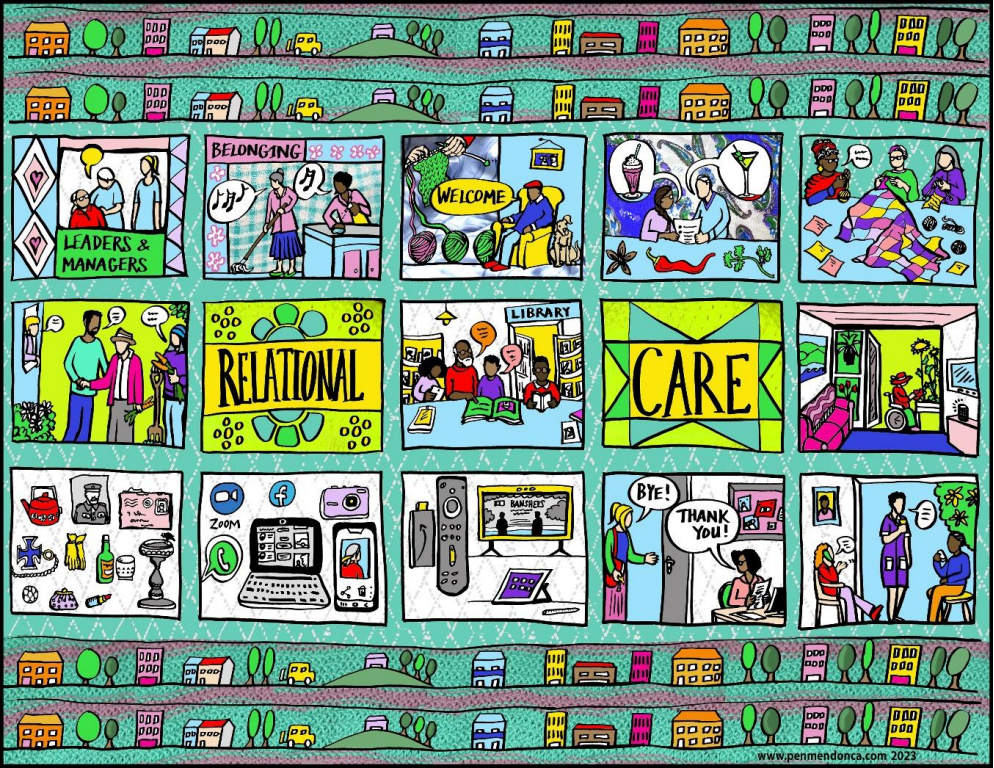A new report published by The Open University outlines, the value relational care with when looking after the elderly. The study, conducted by a team of leading academics, experts, and researchers, delved into the transformative power of positive relationships and their potential to revolutionize the sector.
The report, titled “The Value and Practice of Relational Care with Older People,” sought to examine the question of what happens when things go right in the care of older individuals. Through ethnographic field research, the team visited five care settings across the United Kingdom where relational care was already being practiced. These visits involved in-depth conversations and observations with managers, staff members, residents, volunteers, and family members, generating invaluable insights into the daily lives and experiences of those involved.
Key findings of the research highlighted the importance of relational care, defined as an approach that emphasizes interdependence, mutuality, and the multidirectional flow of care. The study identified three essential components that contribute to the success of relational care: an atmosphere of respect, trust, and inclusivity; a purposeful focus on relationships; and a physical environment that facilitates autonomy and meaningful connections.
Furthermore, the research team presented a model of relational care that encompassed the dynamics between residents, staff members, the physical environment, and the wider community. This model serves as a foundation for understanding and implementing relational care across a range of care settings, offering inspiration and guidance for improving the well-being of older individuals.
The implications of this research are far-reaching and hold the potential to address critical issues within the adult social care sector. By prioritizing relational care, the sector could tackle challenges such as recruitment and retention of staff, workforce training and development, the overall well-being of older people, facility planning and design, and statutory regulations.
To support the implementation of relational care, the research team has developed a toolkit for staff teams, leaders, and care providers. This toolkit offers practical guidance, case studies, reflective exercises, and answers to common challenges, empowering care professionals to fully realize the benefits of relational care. Additionally, plans are underway to develop freely accessible professional development and training resources, which will be available on The Open University’s renowned OpenLearn platform from October 2023.
The research report has received accolades from industry experts and stakeholders. Professor Martin Green, Chief Executive of Care England, commended the study, stating, “This study graphically illustrates that whatever challenge a person faces, and whatever service they receive, the thing that remains important is the relationships that they have with others, and particularly the people who support them.” Avnish Goyal, Chair of Hallmark Foundation and Hallmark Care Homes, shared his endorsement of relational care, stating that it supports happier older people, creates positive home environments, and promotes job satisfaction among care teams.
This seminal research not only offers practical and achievable solutions for the care of older people but also has the potential to shape future debates and policies surrounding adult social care provision in the UK. The authors hope that their insights will inspire the necessary developments to ensure the benefits of relational care are experienced by everyone involved in the care of older individuals.
To access the full research report and the relational care toolkit, please visit link to the report.
The Open University’s research project on relational care provides a glimmer of hope in an otherwise challenging landscape for the care of older people. By prioritizing positive relationships, respect, and inclusivity, the sector can take a significant step forward in transforming the well-being and quality of life.






